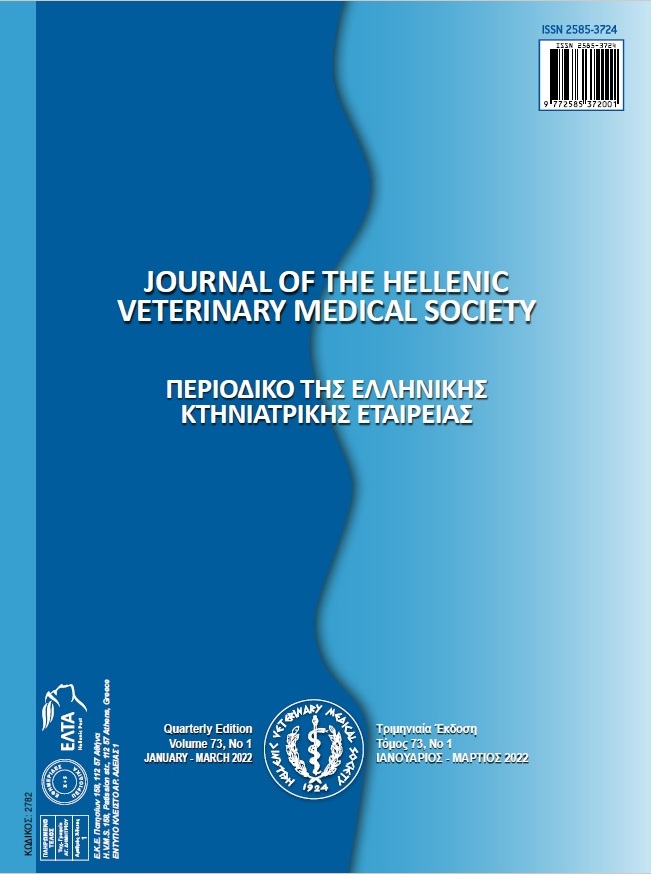Aggressive behavior in cats exposed to trauma
Abstract
Aggression is an important behavioral problem in cats. This issue can occur as a reaction when there is disease or pain in a normal cat. The aim of this study is to evaluate the behavior changes of cats exposed to trauma using behavior scoring system and demeanour scoring system. In this study consisted of 135 cats of different breeds, ages and genders with high rise syndrome and traffic accidents. These cats were given a detailed clinical and radiological examination. Demeanour scoring system, behavior tests, and visual analog scale were used to identify behavior changes and pain in cats. The findings from this study showed that cats exposed to trauma may experience behavioral changes or agression, and this may result from pain or stress from trauma. As a result, stress from trauma in cats can also lead to a change in behavior, a temporary aggressiveness.
Article Details
- Zitationsvorschlag
-
YAYLA, S., ALTAN, S., ersöz kanay, berna, çatalkaya, emine, & saylak, nahit. (2022). Aggressive behavior in cats exposed to trauma. Journal of the Hellenic Veterinary Medical Society, 73(1), 3875–3880. https://doi.org/10.12681/jhvms.26039
- Ausgabe
- Bd. 73 Nr. 1 (2022)
- Rubrik
- Research Articles

Dieses Werk steht unter der Lizenz Creative Commons Namensnennung - Nicht-kommerziell 4.0 International.
Authors who publish with this journal agree to the following terms:
· Authors retain copyright and grant the journal right of first publication with the work simultaneously licensed under a Creative Commons Attribution Non-Commercial License that allows others to share the work with an acknowledgement of the work's authorship and initial publication in this journal.
· Authors are able to enter into separate, additional contractual arrangements for the non-exclusive distribution of the journal's published version of the work (e.g. post it to an institutional repository or publish it in a book), with an acknowledgement of its initial publication in this journal.
· Authors are permitted and encouraged to post their work online (preferably in institutional repositories or on their website) prior to and during the submission process, as it can lead to productive exchanges, as well as earlier and greater citation of published work.



